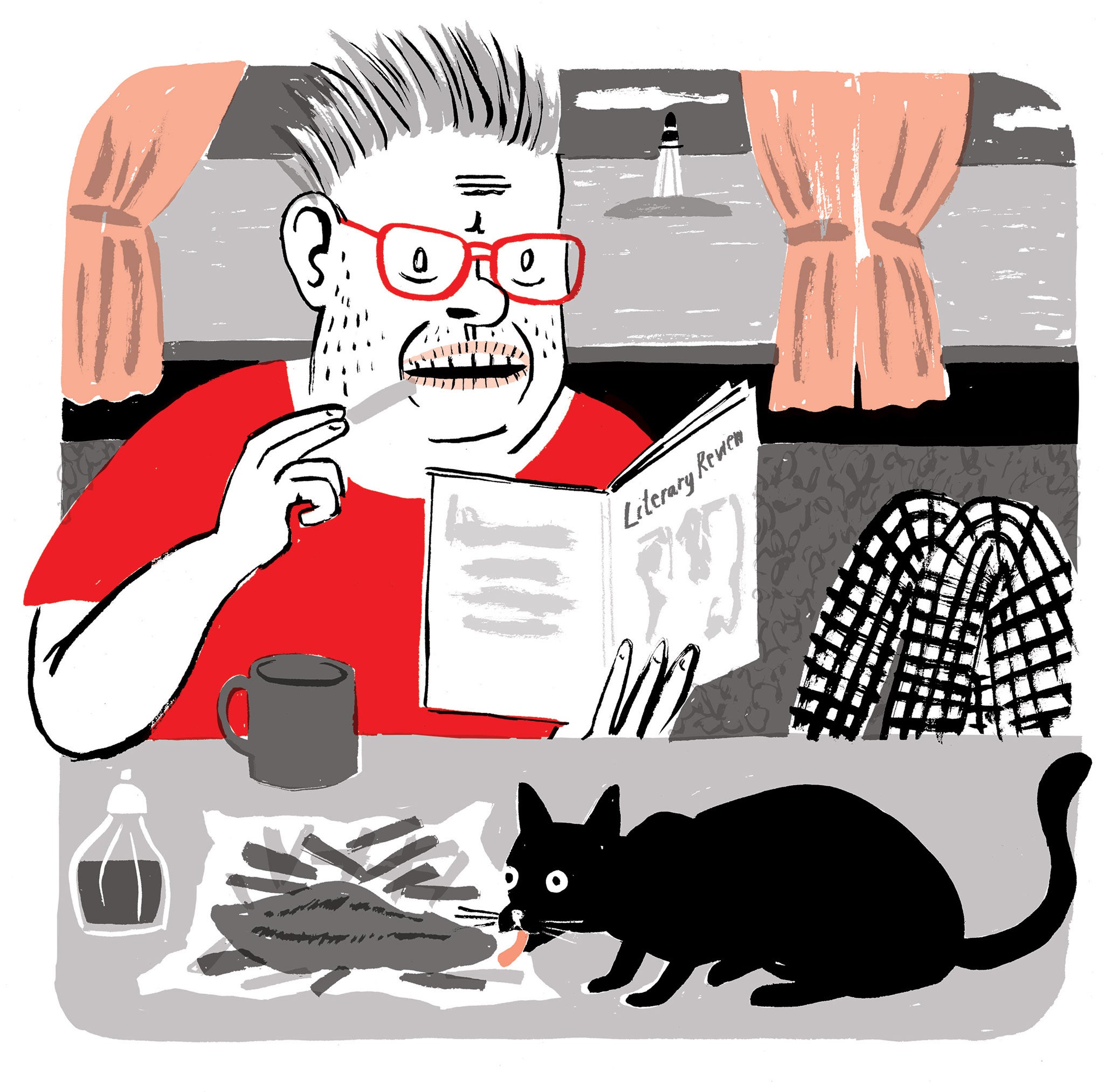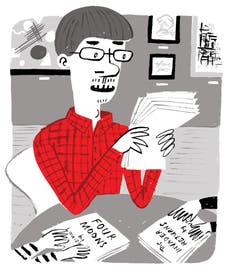Life As We Know It: Whatever happened to Howard Creighton, man of promise?
The man who obtained the most superlative degree ever awarded by the Cambridge history faculty is now sequestered in a mobile home with an elderly cat named Aethelred

Just at this moment fifty-something Howard and his girlfriend Miggy are living on a caravan site in Hornsea, East Yorkshire. It is not, as he occasionally concedes, an ideal location – the paraffin heater reeks and the wind blows in off the sea with astonishing virulence – but is probably superior to their previous port of call, a tumbledown terraced house in nearby Bridlington. Happily, the postman continues to deliver copies of the various literary magazines to which Howard subscribes, along with the alumni newsletters from his old Cambridge college, which lie around on the caravan's floor next to the trays of cat litter and the fish-and-chip wrappers.
Howard's friends from the old days are dispersed around the world now, teaching Sanskrit at Harvard or on archaeological digs in the Baltic. On the rare occasions that they are assembled together, someone – some Professor of the Humanities, some Fellow of the British Academy – will invariably ask, "Whatever happened to old Howard?" For this was a man who, 30 years ago, obtained the most superlative degree ever awarded by the Cambridge history faculty and wrote a thesis, later published by the University Press, entitled "Early Irish Kingship: Mosaics of Hegemony", described by the English Historical Review as "altogether seminal".
What did happen to old Howard, and why did he end up red-faced, badger-haired and three stone overweight, sequestered in a mobile home with an elderly cat named Aethelred and a woman 20 years younger than him with several convictions for shoplifting for company? Nobody knows. He taught at a Midlands university for a bit then unexpectedly left it. There was talk of nervous breakdowns and, somewhat later, a good deal of spiky, incomprehensible post-modernist poetry, a fragment or two of which appeared in print.
Every so often someone decides to do something about "poor old Howard", as he is now generally known. The potential remedies range from a month's guest-lecturing to reading manuscripts for an academic publisher. They are never any good. The manuscripts get lost in the piles of newspapers, and the institutions hosting the lectures wait in vain for their guest. Most baffling, however, is Howard's apparent acceptance of his lot. A friend who trekked up to the caravan site at Christmas reported him "perfectly happy, still writing poetry, but rather worried about Aethelred".






Join our commenting forum
Join thought-provoking conversations, follow other Independent readers and see their replies